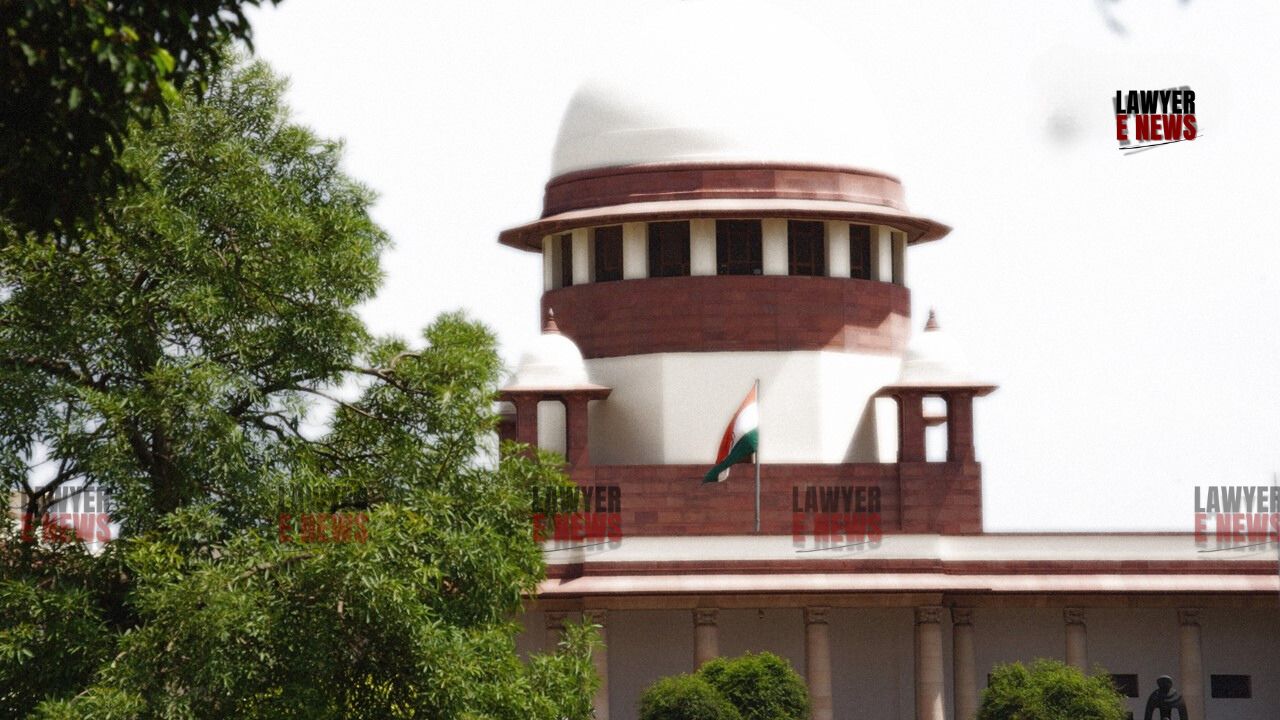-
by Admin
15 February 2026 5:35 AM



Supreme Court of India granted bail to Laxmikant Tiwari, who had been in custody for nearly two years under charges of money laundering related to an FIR registered in Bangalore in July 2022. The court found that at the time the complaint under the Prevention of Money Laundering Act (PMLA) was filed, no scheduled offence was in existence, making the continued detention a violation of his rights under Article 21 of the Constitution.
Laxmikant Tiwari had been implicated in a case based on an FIR lodged at the Kadugodi Police Station, Bangalore, on July 12, 2022, alleging offences under Sections 186, 204, 353, and 120-B of the Indian Penal Code (IPC). None of these offences, except Section 120-B, were scheduled offences under the PMLA. The Enforcement Directorate (ED) initiated an investigation, and an ECIR (Enforcement Case Information Report) was filed based on the FIR.
Initially, the ED charged Tiwari under the PMLA, but upon further investigation, the charge under Section 120-B was dropped in June 2023, as it could not be considered a scheduled offence. The FIR was then supplemented by another charge under Section 384 of the IPC (extortion), which was registered in Chhattisgarh in January 2024.
However, the Supreme Court noted that the scheduled offence necessary to invoke the PMLA had not been established when the complaint under Section 44 of the PMLA was filed. The delay in filing the charge-sheet for Section 384 IPC only in July 2024 further weakened the ED's case.
The main issue before the Supreme Court was whether Laxmikant Tiwari’s prolonged detention under the PMLA was valid when the scheduled offence required under the PMLA was not in existence at the time of filing the complaint.
Tiwari had been in custody for nearly two years without clear evidence linking him to a scheduled offence. The court had to determine whether his continued detention under the PMLA violated his fundamental rights under Article 21, which guarantees personal liberty.
The Supreme Court, comprising Justices Abhay S. Oka and Augustine George Masih, ruled that Tiwari's continued detention without a scheduled offence being established violated his constitutional rights. The bench observed:
"Considering the long period of incarceration and the peculiar facts of these appeals, the continuation of custody of the appellants will be a violation of their right under Article 21 of the Constitution of India."
The court also referred to its earlier ruling in Pavana Dibbur vs. Directorate of Enforcement, which clarified that conspiracy to commit a scheduled offence (under Section 120-B IPC) cannot be treated as a scheduled offence itself under the PMLA.
In light of these factors, the Supreme Court granted bail to Tiwari and directed that he be produced before the Special Court at the earliest. The Special Court was instructed to release him on bail, subject to appropriate conditions after hearing the arguments of the ED's counsel.
The Supreme Court's decision to grant bail to Laxmikant Tiwari marks a significant interpretation of the PMLA, reinforcing the requirement of establishing a scheduled offence before invoking the stringent provisions of the law. The court emphasized that personal liberty under Article 21 cannot be compromised without sufficient legal grounds.
Date of Decision: October 4, 2024
Laxmikant Tiwari vs. Directorate of Enforcement.
